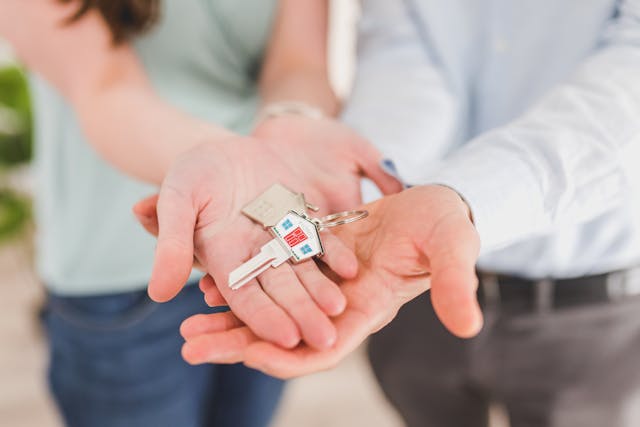Write Us: hello@ali5.org
How Freelancers Build Financial Freedom Without a Boss
Explore how freelancers achieve financial freedom without a 9-to-5. Real strategies, mindset shifts, and habits that make self-employment sustainable and rewarding.

Most people don’t dream of waking up to an alarm at 7 AM just to sit in traffic and clock in for a job they barely tolerate. They do it because that’s what’s expected. Steady paycheck. Health insurance. Predictability. But over the last decade, more people have realized that there’s another way to workand more importantly, another way to live.
That’s where freelancing comes in. It’s not just about working from home in your pajamas. For many, freelancing is the first real step toward financial freedom. No boss. No fixed hours. No cap on your income. It’s just you, your skills, and how well you can use them.
But here’s the thing: freelancing doesn’t automatically mean freedom. Plenty of freelancers are stuck in a cycle of feast and famine, chasing clients, or burning out. So how do the successful ones break out and use freelancing as a tool for financial independence?
Let’s break it down.
What Financial Freedom Really Means (For Freelancers)
Forget the social media version of financial freedom for a second. It’s not always about luxury vacations or six-figure months. Real financial freedom is about choice. It’s the ability to say “no” to toxic clients, to take a week off without worrying about rent, and to work because you want tonot because you have to.
For freelancers, it means not just earning money, but keeping it, growing it, and being smart about how you use your time and energy.
Why Freelancers Have an Edge
Unlike salaried employees, freelancers aren’t locked into one income stream. You can have multiple clients, offer different services, raise your rates, or even create digital products or courses that earn while you sleep.
The flexibility isn’t just about scheduleit’s about earning potential. You don’t need permission from HR to make more money. You decide your ceiling.
Also, freelancers learn early on how to handle finances: tracking income, managing irregular payments, setting aside taxes, and budgeting without a fixed paycheck. These skills naturally lead to a better relationship with money, which is crucial for building long-term wealth.
Steps Freelancers Take to Build Financial Freedom
1. Diversify Your Income Streams
Relying on one client is just as risky as relying on one employer. Successful freelancers understand this. They:
-
Work with multiple clients
-
Offer add-on services (e.g., a copywriter adding SEO consulting)
-
Create passive income through e-books, templates, or online courses
-
Start niche blogs or YouTube channels with monetization potential
This not only brings in more income, but also acts as a safety net if one client disappears overnight.
2. Charge What You’re Worthand Then Some
One of the biggest mindset shifts is realizing you’re not trading time for money. You’re offering value.
Freelancers who reach financial freedom don’t compete on being the cheapest. They position themselves as experts, choose clients who respect their rates, and raise those rates consistently as they grow.
If you’re scared to charge more, remember this: working with fewer high-paying clients is way less stressful (and more scalable) than juggling ten low-paying ones.
3. Automate and Streamline Everything
Time is moneyand freelancers who treat their time like currency win big.
That means:
-
Using templates for proposals and onboarding
-
Automating invoicing and reminders
-
Outsourcing admin tasks like bookkeeping or graphic design
-
Batch-working and setting clear client boundaries
All of this frees up mental energy and allows you to spend more time on high-earning or creative tasks (or just, you know, life).
4. Build an Emergency Fund Early
Unlike salaried workers with fixed income, freelancers often deal with dry months. The smartest freelancers plan for this from day one.
Having 3-6 months of expenses saved means you don’t panic when a client pauses work. It also gives you the power to say no to projects that don’t align with your valuesor your goals.
5. Invest Like a Boss
Here’s where many freelancers go wrong: they earn well, but don’t build long-term wealth. Freelancers who have hit financial freedom understand the power of compound interest and passive growth.
They:
-
Open retirement accounts (like IRAs or equivalents)
-
Invest in index funds or real estate
-
Reinvest profits into their business (ads, courses, gear, etc.)
-
Learn about money management instead of ignoring it
You don’t need to be a finance guru. You just need a plan.
6. Create a Scalable Offering
At some point, trading time for money caps out. That’s why many freelancers start building things that scale.
Examples:
-
A graphic designer launching Canva templates
-
A writer offering an e-book or a paid newsletter
-
A virtual assistant is building a small agency and hiring help
-
A photographer selling Lightroom presets or running workshops
The idea is to create something once that can be sold 100 times.
But What About Burnout?
Here’s the honest part: freelancing can be exhausting if you let it control you. The pressure to say yes to everything, stay online 24/7, or chase the next project can burn you out before you ever get near financial freedom.
That’s why boundaries are everything.
Set work hours. Take weekends off. Build recurring income so you’re not always hustling. Say no without guilt. You’re running a business, not a charity.
And rememberrest isn’t the opposite of productivity. It’s part of it.
How Long Does It Take to Reach Financial Freedom?
There’s no one-size-fits-all answer. Some freelancers hit $10k month within a year. Others take longer. But the ones who win long-term are the ones who stay consistent.
They:
-
Keep learning and improving their craft
-
Track income and set financial goals
-
Don’t fall into lifestyle inflation
-
Focus more on impact than just hours worked
Even small moves like saving 20% of your income, raising your rates by 10%, or launching your first passive productcompound over time.
Final Thoughts
Financial freedom as a freelancer isn’t a fantasy. It’s a series of intentional choices. It’s building your work around your lifenot the other way around.
The journey isn’t always easy. There are times when things are slow, bad clients, self-doubt, and tech problems. But you also have freedom, control, and the chance to make something that is truly yours.
And the best part? You don’t need a boss to get there.
You just need a plan, a bit of courage, and the willingness to keep goingespecially when it gets hard.
Because freelancing doesn’t just give you income. It gives you ownership.
And that, more than anything, is the real foundation of financial freedom.







